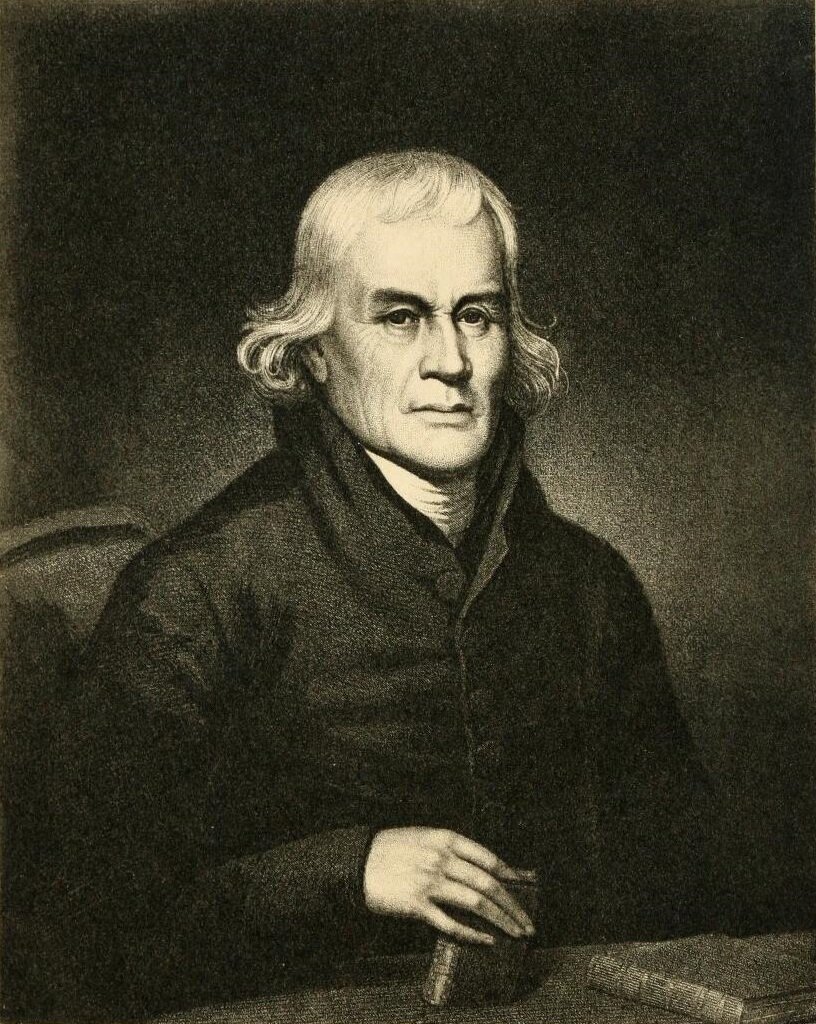Francis Asbury
August 20 or 21, 1745 - March 31, 1816
Francis Asbury was a well-known Methodist evangelist, Christian abolitionist, and revivalists.
Francis Asbury
August 20 or 21, 1745 - March 31, 1816
Parents: Joseph and Elizabeth (Eliza) Rogers Asbury
Father Joseph was a farm labor, gardener, and later worked at a brewery. Mother Eliza was Welsh.
Francis “Frank” was born near Hamstead Bridge in West Midlands, England
Methodism was central to Eliza spiritual awaking after depression because of daughter’s death. She invited “any people who had the appearance of religion to her home.”
Education
A free school at Sneal’s Green
Cruel schoolmaster forced Francis to leave school at 12 or 13.
Learned trade of metalworker.
Spent six and a half years in the trade
Avid reader
Joined Methodist class meeting
At about 17 begin exhorting and preaching in public.
At age 21 took place of traveling preacher assigned to the Staffordshire Circuit.
For four years Wesley assigned Asbury to rural circuits in the South of England.
At 26 volunteered at the Bristol Conference in August 1771 to go to America. Answered Wesley’s call for volunteers.
1771 Francis Asbury sails to America as 26 year-old missionary. Arrived in Philadelphia October 27, 1771.
He understood the common man and could relate to the people. Most Americans lived on farms and in small villages.
“Asbury accepted that America was culturally different from England, with it own set of needs.”
Related more to the South’s Methodism than the North’s, and their loudness in worship.
By May 1774 Conference most gains of Methodists was in the South.
Asbury spent 10 years in Maryland, Delaware, and Virginia “where Methodism took shape in the fires of revival.”
Revolutionary War started in April19, 1775. Wesley ordered Asbury home to England. Asbury refused. He stayed neutral and did not take sides like Wesley.
Asbury heard of the Virginia Revival which started in 1763 by Anglian Priest Rev. Devereus Jarrett in Dinwiddie, Virginia. Wanted to see for himself. Arrived in Norfolk for first time May 29, 1775. In Portsmouth in October, and Brunswick Circuit and14 other counties.
Virginia Revival included Church of England, Methodist, and Presbyterian worshipers falling, crying, and shouting under the conviction. Labeled “Southern Zeal”. Reported crowds in 1775 between 2,000 and 3,000 at Methodist meetings. These revivals created the model for Methodist expansion for 40 years. Also Methodists started weekly home group meetings which became a part of Methodism and discipleship training.
Asbury focused Methodism on evangelistic doctrine practices, lifestyle, and purposes,”…”live religion”, ‘scripture based and hymns sung, and proclaimed the human ability to respond to God’s grace.”
Church of England disestablished in the South of America in 1770 to 1780’s,
(MD, VA, GA, NC, SC) ending Tax support for churches.
Rankin sent by Wesley in 1773 to lead America Methodist.
Stayed in Maryland in 1777, and in Delaware starting February 1778 for 2 and a half years because of the war. Rankin, America Methodist Superintendent, returns to England in March 1778.
In 1780, starting in May, Asbury traveled thru Virginia, then North Carolina, and returned back to Virginia in August. “In Nansemond County, Virginia, he preached to 300 people with “uncommon freedom.” P121
In 1781 Asbury started going South in the winter, and North in the summer.
1784 John Wesley names Asbury and Thomas Coke “superintendents” of work in America.
Asbury appointed in September 1783, General Assistant by Wesley, highest Person in America. Asbury had kept North and South Methodist leadership together. In 1784 Asbury still payed $60 a year, plus traveling expenses.
1788 John Wesley rebukes Asbury and Coke for calling themselves “bishops”.
By 1788 Asbury expanded annual conference to include 8 district conferences.
Changed name to Methodist Episcopal Church (MEC) to differentiate from England and to show alliance with Church of England.
Asbury continues conferences in America annually supervised by a bishop.
Quarterly meeting of circuits. These meetings grew into camp meetings for food, fellowship, preaching bringing own provisions for sleeping instead of being assigned to homes.
Camp meetings in America started around 1795 and continued into late 1800’s. Camp meetings started in 1800 in Virginia in Brunswick County, and they “appealed to Asbury because of their fervor and the enthusiasm with which his preaching was greeted.“
Stressed weekly class meetings with a leader organized into circuits..
Asbury ordained Richard Allen, first black deacon in 1799.
Richard Allen (1760 – 1831), a former slave, began a career as a teaching Methodist after purchasing his freedom.. Was licensed to preach in 1784 by Methodist. In 1794 Allen founded ”Mother Bethel” church in Phila.
In 1816 Allen began African Methodist Episcopal Church (AME).
Asbury promoted separating religious leadership from wealth and formal education. He used poverty to keep himself honest.
Asbury became a personal friend of Thomas Jefferson.
Asbury ordained over 2000 to 3000 Methodist preachers.
He had ridden over 130,000 miles by horse, despite poor health.
Crossed the Allegheny Mountains some sixty times
Probably delivered more than 10,000 to 12,000 sermons.
Preached last sermon March 24, 1816 in Richmond, Va.
Died March 31, 1816 in Spotsylvania, VA.
Buried May 10, 1816 Baltimore, MD., Eutaw Street Church.
Asbury never married, no children, did not own a home, stayed with families.
Statue of Asbury on his horse stands in Washington, DC. President Calvin Coolidge in his dedication speech said the Asbury “is entitled to rank as one of the builders of our nation.”
References
Edited: “The Journal and Letters of Francis Asbury, Vol I, Vol II, III, 1958.
Christian History Magazine, Issue 114, “Francis Asbury Pioneer of Methodism.
Nygaard, Norman E, “Bishop on Horseback, A Story of Frances Asbury” Zondervan Publishing House, 1962.
Sweet, William Warren “Virginia Methodism, A History”, Whittet & Shepperson, Richmond, Va. MCMLV
Wigger, John “American Saint”, Oxford University Press, 2009

